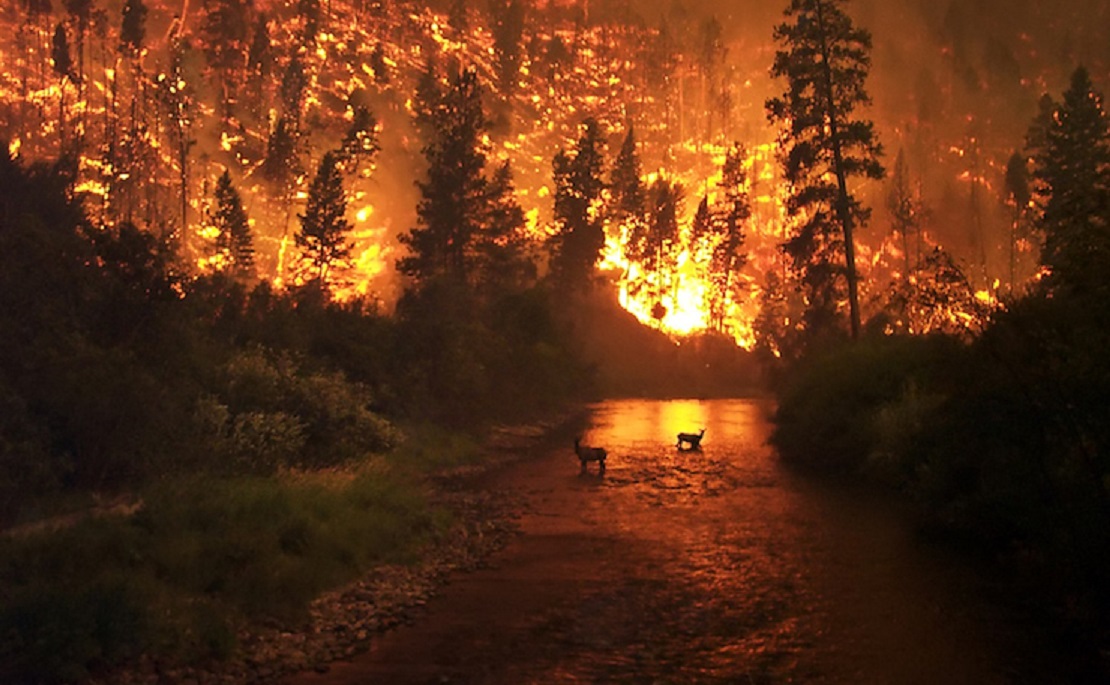The Cottonwood Environmental Law Center’s legal challenge against the Forest Service in 2015, culminating in the Cottonwood decision by the 9th Circuit, has created significant hurdles for wildfire prevention efforts and endangered species protection in the American West. This landmark ruling mandates the Forest Service to halt forest management projects whenever new information emerges about endangered species, leading to delays and heightened risks for both wildlife and human habitats. As wildfires in the region grow in frequency and severity, the implications of the Cottonwood decision become increasingly dire.
Endangered species face heightened threats, and communities are left vulnerable to catastrophic blazes. In this article, we delve into the consequences of the Cottonwood decision, examining its impact on wildfire mitigation efforts, the challenges it presents to species conservation, and the urgent need for legislative action to repeal it. By understanding the complexities surrounding Cottonwood, we can better advocate for effective measures to protect both ecosystems and communities in the American West.
Understanding the Cottonwood Decision
The Cottonwood decision, handed down by the 9th Circuit, mandates the Forest Service to halt forest management projects whenever new information arises about endangered species. While ostensibly aimed at protecting vulnerable species, this legal precedent has led to significant delays and obstacles in implementing crucial wildfire mitigation measures.
Implications for Wildfire Mitigation
One of the most pressing issues stemming from the Cottonwood decision is its hindrance to wildfire mitigation efforts. With wildfires in the American West growing larger and more severe, timely intervention is essential to protect both human communities and natural habitats. However, the requirement to pause forest management projects for reanalysis exacerbates wildfire risks, leaving landscapes vulnerable to catastrophic blazes.
Endangered Species at Risk
The Cottonwood decision’s impact on endangered species cannot be overstated. Delays in forest management projects directly threaten the survival of vulnerable species, as evidenced by the decline of populations such as the Mount Graham squirrels in Arizona and the precarious situation of various other species across the region. Without swift action to repeal Cottonwood, the risk of extinction for these species only continues to escalate.
Challenges to Effective Conservation
Despite its purported aim of enhancing protection for endangered species, the Cottonwood decision presents significant challenges to effective conservation efforts. The requirement for the Forest Service to pause forest management projects for reevaluation each time new information arises about endangered species leads to delays and impediments in implementing proactive conservation measures. This bureaucratic hurdle not only hampers wildfire mitigation projects but also fails to demonstrate tangible benefits for endangered species. Conservationist groups, while leveraging Cottonwood to halt projects in the name of species protection, inadvertently contribute to exacerbating the threats facing vulnerable wildlife populations. The lack of evidence showcasing improved outcomes for endangered species as a result of Cottonwood underscores the need for legislative action to address this issue. Repealing the Cottonwood decision is essential to streamlining conservation efforts and ensuring the timely implementation of measures to safeguard both species and their habitats in the American West.
Case Studies: Montana’s Wildfire Mitigation Project
The case of the wildfire mitigation project in Montana serves as a stark example of the detrimental impact of the Cottonwood decision. Despite warnings of severe wildfire risks, the project was halted due to legal challenges invoking Cottonwood. Subsequently, a wildfire erupted, devastating habitats and endangering species that conservationists sought to protect. This illustrates the urgent need to repeal Cottonwood to enable proactive measures that mitigate wildfire risks while safeguarding endangered species.
Legislative Action: Addressing the Cottonwood Decision
In response to the pressing challenges posed by the Cottonwood decision, Senator Steve Daines and Representative Matt Rosendale have taken decisive action by introducing legislation aimed at rectifying its harmful consequences. Their proposed legislation seeks to repeal Cottonwood, thereby restoring the Forest Service’s capacity to implement proactive wildfire mitigation strategies and ensure robust protection for endangered species. By prioritizing public safety and environmental conservation, Congress has the opportunity to mitigate the escalating risks associated with wildfires while concurrently safeguarding the invaluable biodiversity of the American West. This legislative initiative represents a crucial step towards fostering resilient ecosystems and communities, underscoring the imperative of concerted action to address the detrimental impacts of Cottonwood on both wildlife and human habitats.
Conclusion
The Cottonwood decision represents a significant barrier to effective wildfire mitigation and species protection efforts in the American West. Its impacts are felt across landscapes, endangering both human communities and vulnerable wildlife populations. Through legislative action to repeal Cottonwood, Congress has an opportunity to prioritize proactive wildfire management and conservation measures. By doing so, we can mitigate the devastating effects of wildfires and ensure the long-term survival of endangered species in our natural ecosystems.

